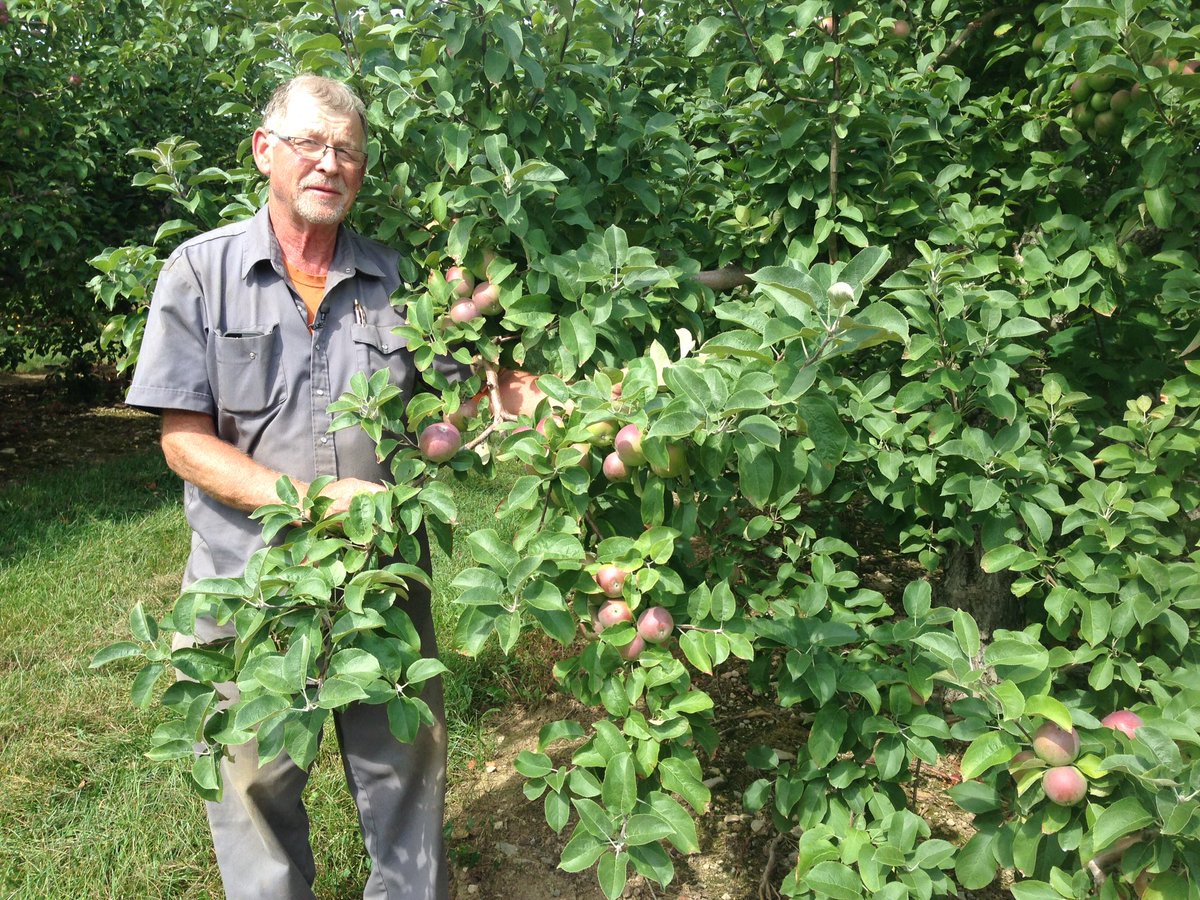The New Brunswick department of agriculture said many parts of the province experienced significantly lower rainfall in July than the 30-year average, with temperatures being close to normal. The lack of rainfall and dry conditions have farmers concerned about their crops.

The lack of rainfall and dry conditions have farmers concerned about their crops.
Eugene Hoyt is a sixth-generation apple grower who recently sold his farm in Price William, N.B., but is still currently working for the new owners. He said the lack of rain in July is hurting the crops.
“Most years, we receive an average of about an inch of rain per week during the growing season and that starts from the first of May, right straight through until October. We normally get probably four inches a month on average, this year from the first of July until last weekend we had 3/4 of an inch over a seven week period,” Hoyt said.
He said the trees abort fruit when they’re too dry as a defense mechanism to protect the tree itself. Hoyt also said many of the apples are too small to be considered premium apples this year.
“We’re going to sacrifice some fruit size with our crop. So instead of picking 600 boxes to the acre, I’m probably only going to pick 400.”
READ MORE: Heavy rain not helping Atlantic Canadian farmers
He said they’re after the market sizes. While there is fruit on trees he said many of them still need to fill out in order to have a good crop but he said he doesn’t think that will happen because it’s too dry.

Get daily National news
Hoyt predicts that could mean a 30 per cent cut to income this year for the new owner of the farm.
“That’s farming,” Hoyt said.
Hoyt said an inch of rain in the last week is helping some of the apple trees but said it’s “too little too late.” He said a small amount of rain wouldn’t do much for this year’s crop, but it would still help the trees into the future.
This year 1,250 new apple trees were planted that will be in full production in three years. Hoyt said the dry weather is impacting their growth. He said they haven’t grown as much as they should have this year and said at an initial investment of $30,000 it’s unfortunate they’re not as tall as he would have liked them to be by now.
The orchard doesn’t currently have an irrigation system, but Hoyt said it’s something that might be required if conditions stay dry next year. He said it’s “like buying insurance”.
“If we get another dry year we’re going to have to have an irrigation system. There’ s lots of water in the Saint John river, we’ve just got to get it up here,” Hoyt said.
“That’s an expensive investment, but we’re going to do whatever it takes in order to make this work.”
Hoyt said they’re one of 27 apple producers in the province.
“We need four inches of rain PDQ to really make this thing turn out right and I don’t see four inches of rain on the horizon,” Hoyt said. He said that equates to needing an accumulation of approximately 100 mm of rain over the next two to three weeks to finish off the growing season.
READ MORE: Rain greatly needed for Saskatchewan’s arid and parched crop land
While there have been several thunderstorms recently, Hoyt said when it downpours for a short amount of time the water doesn’t get absorbed into the soil because it’s already too hard and dry. He said there needs to be “an inch over a 12-hour period for it to really wet in”.
“It’s not looking good for us,” Hoyt said. “We do believe in miracles though.”
Other producers also impacted
In an email statement from the province’s Department of Agriculture, Aquaculture and Fisheries spokesperson Anne Bull said the lack of moisture has impacted berry crops in New Brunswick this season.
“Berry sizes have been reported to be smaller and yields are reduced in some areas. Some vegetable crops have been impacted as well with reduced productivity,” Bull said.
She said other apple growers are also affected, depending on the variety of apples they grow. She said several orchards are reporting a reduction or slowdown in fruit sizing and colour development.
Bull also said some varieties of potatoes which are more prone to drought are dying down earlier than expected.
“One advantage of the dry weather for potato growers has been the reduced risk of the potato disease late blight, which prefers wet conditions,” Bull said.
Frost protection was required for a few cranberry farms the week of August 7 which is extremely early. Cranberry growers also need rain to raise the reservoir levels to protect the product from frost and to flood the beds for harvest later this fall.








Comments
Want to discuss? Please read our Commenting Policy first.